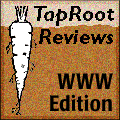
Mark Wallace writes out of the specifics of this place and time, "dishrags," "parking lots," and "fat mad cats." But this is a critical poetics of the everyday. The signifying practices which might have been used behind the scenes to construct the poet's authentic voice and experience are instead foregrounded and questioned in Wallace's poetry. So his poetics remains committed to the ordinary while denying it its ideologically privileged status of "real life." This is a position very difficult to negotiate: the reified notions of "authenticity" and "real life" are so dominant in the US--and so commercially useful, too--that few poets of the ordinary avoid them, while poets who try to reject this ideology may substitute a practice so deliberately artificial and restricted that it ends up affirming "real life" after all. Wallace's negotiations employ Language writing practices; in particular, he is interested in sound as a material property of language. Sound associations and chime-rhymes often carry on the forward movement of his lines, derailing referentiality; the sounds do not fit the sense but undermine it. I also find a strong poetic persona in these lines, but not as a "voice"; instead, the persona draws its strength from its submergence and dispersal in the social matrix of language.--Charlotte Pressler
This review originally appeared in TapRoot Reviews #4,
Contact the editor, luigi-bob drake, at Burning Press
Copyright Burning Press 1994, 1995.